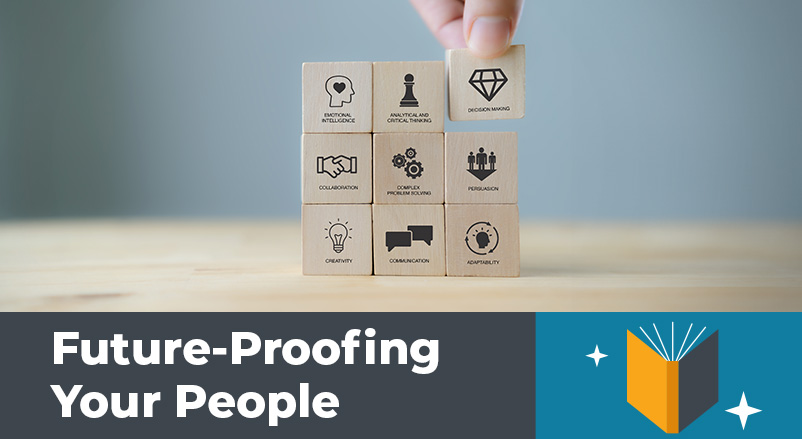The future of work isn’t just coming — it’s already here. Automation, AI, and rapid digital transformation are reshaping roles across every industry. To stay competitive, organizations need more than just cutting-edge tools — they need people who can think critically, adapt quickly, and collaborate effectively.
That’s where future-proofing comes in.
At Halight, we see future-proofing as a human-centered ongoing commitment to growth. It’s about equipping your people with the skills they need to thrive — and that starts with soft skills.
The Foundation of a Future-Ready Workforce
While technical skills may get the job done today, soft skills are what carry teams into tomorrow. These human capabilities, like empathy, resilience, and creative problem-solving, can’t be automated. They’re what make people irreplaceable.
A human-centered learning culture prioritizes the learner’s experience, needs, and development. It’s about creating learning environments that are inclusive, engaging, and emotionally intelligent. This approach recognizes that employees are communicators, collaborators, and problem-solvers navigating complex, dynamic environments.
To truly support this kind of culture, eLearning must evolve. It must go beyond technical training. It must empower people with the soft skills that help them thrive.
How eLearning Builds Soft Skills
We design eLearning experiences that are immersive, interactive, and deeply human. Here’s how we help learners build soft skills:
- Real-World Scenarios: Learners engage with realistic, emotionally nuanced situations that challenge them to think critically and respond thoughtfully.
- Reflective Learning: Built-in prompts and assessments encourage self-awareness and personal growth.
- Collaborative Tools: Social learning features foster peer-to-peer feedback and shared learning experiences.
- Microlearning: Short, focused modules make it easy to build soft skills over time, without overwhelming the learner.
Each of these elements is designed to meet learners where they are — and help them grow into where they need to be.
The Business Case for Soft Skills
Soft skills training isn’t just good for people — it’s good for business. Companies with strong soft skills cultures report:
- Higher employee engagement and retention
- More effective leadership and collaboration
- Greater adaptability in times of change
By embedding soft skills into eLearning, organizations can cultivate a workforce that’s not only capable but compassionate, not only skilled but self-aware.
Designing for the Whole Person
When learning is human-centered, it becomes more than a task. It becomes a journey of growth, connection, and transformation.
Let’s build learning that puts people first. Schedule a discovery call with us today to learn more!
